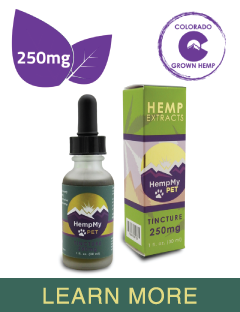Winterize Your Pet’s Diet
 By David Richardson, Owner Tail Waggin’ Pet Supplies
By David Richardson, Owner Tail Waggin’ Pet Supplies
Well, you’ve found the clicker for your car’s remote start, dug the hats and gloves out of the closet, and found five dollars in the coat you haven’t put on since last winter, so it seems you are ready to face the cold weather, but what about your pet? As most Coloradans know, we will have some extremely cold days this winter, but you might not know that cold weather can be hard on your pet’s body in the same ways it is hard on yours. So you need to be aware of how to keep your pet happy and healthy this winter.
Step one is to ensure your pet drinks more water during the winter months to prevent dehydration. If you have a water and food bowl outside, frequently check that the water is not frozen and that the food does not become soggy and inedible. One way to do this is to invest in a bowl that keeps the water moving; thus helping to prevent freezing.
Joint care should also be a priority. Cold weather can make it hard for pets, especially older ones, to move around. Dogs that already have osteoarthritis may struggle more as temperatures drop. A good way to avoid sore joints is to make sure you are either feeding them kibble that contains glucosamine and chondroitin or adding it to their diet. Glucosamine products have shown promise for healing skin wounds, stomach ailments, and joint problems in humans, horses, dogs, and cats by providing the building blocks to synthesize new cartilage.
While glucosamine builds cartilage up, chondroitin helps to prevent it from breaking down, by reducing the number of destructive enzymes found in the joint. Chondroitin is a naturally occurring product found in animal cartilage. Most supplements are derived from shark and whale cartilage; while some are made from bovine sources. Studies show that the source of the chondroitin supplement has no impact on the effectiveness.
Omega 3 fatty acids are also a great addition to your dog’s diet. Particularly in the winter, because they provide a natural way to alleviate inflammation and maintain homeostasis in your pet’s body. Most manufactured pet foods and treats contain more Omega 6 fatty acids than Omega 3 due to manufacturing costs, therefore pet owners should consider adding an Omega 3 supplement to kibble or picking up some of the many treats that are high in Omega 3 fatty acids.
So, the next time your joints feel stiff because it is cold; remember that your pet might be feeling the same way. Then check their food to ensure they aren’t missing any important joint friendly ingredients in their diet.
Denver Tail Waggin’ Pet Supplies
Phone: 720-469-3600
Website: www.denvertailwaggin.com







